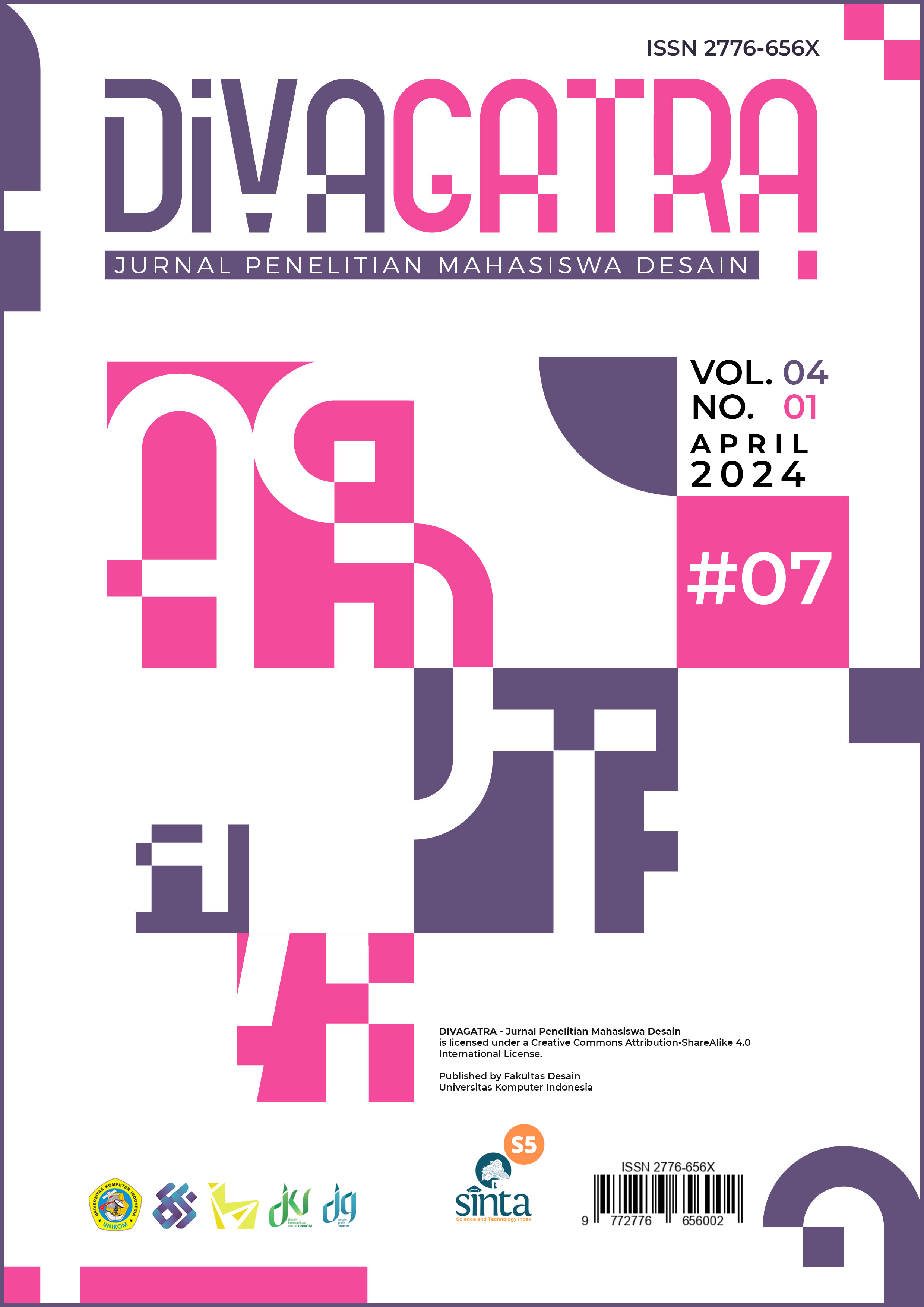Perancangan Gim Digital tentang Camilan Tradisional Khas Sulawesi sebagai Media Edukasi untuk Remaja
Main Article Content
Abstract
Indonesian regional snacks are highly valued for their cultural significance due to their distinctive taste, composition of ingredients, and processing techniques. Due to the globalization of free trade exchange and the ease with which information can be exchanged in the modern technology era, teens' interest in traditional snacks from different parts of Indonesia is currently waning. Especially on the island of Sulawesi, many traditional food vendors have forced to close their doors as a result of the Indonesian people's adaptation to the digital world over the past five years. With the purpose of educating and acquainting teenagers aged 12 to 18 with typical Sulawesi snacks, this mix-method study used a glass box method approach. The design visualization results use a simple chibi cartoon graphic style so that the content in the game may be readily conveyed and understood by the target market, while the data collecting and analysis results use literature studies and questionnaires. Thus, in an effort to maintain the cultural flavor of typical Indonesian snacks, this digital game can be utilized as an instructional tool regarding common Sulawesi snacks.
Article Details
Section
![]()
Authors who publish articles in DIVAGATRA agree to the following terms:
- Authors retain the copyright of the article and grant the journal right of first publication with the work simultaneously licensed under CC-BY-SA or The Creative Commons Attribution–ShareAlike License.
- Authors can enter into separate, additional contractual arrangements for the non-exclusive distribution of the journal's published version of the work (e.g., post it to an institutional repository or publish it in a book), with an acknowledgment of its initial publication in this journal.
- Authors are permitted and encouraged to post their work online (e.g., in institutional repositories or on their website) before and during the submission process, as it can lead to productive exchanges, as well as earlier and greater citation of published work (See The Effect of Open Access).

